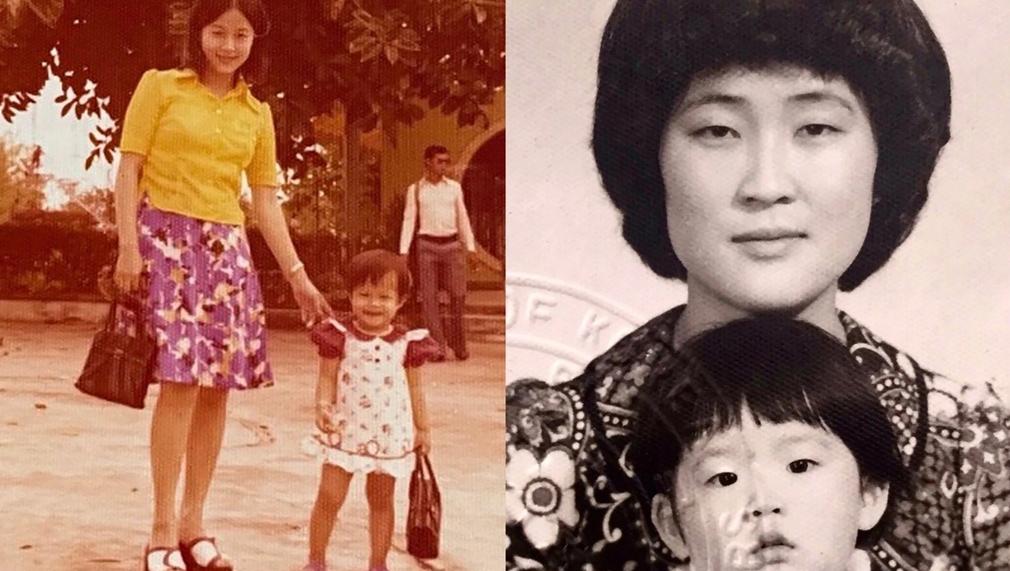(re)Location: Connecting intergenerational immigrant and refugee communities
(re)Location spotlights the resilience of senior adults who journeyed from war-torn Laos and post-war Korea to the U.S. in the 1970s and 80s. Our project amplifies the contributions of Lao and Korean elders to the AAPI community and the broader context of L.A. County while creating space for Angelenos of all ages to connect to universal themes of origins, journeys, and new roots. Through two multilingual community-building events, online and physical exhibitions featuring stories, cultural artifacts, and art, we strive for a more empathic L.A.

What is the primary issue area that your application will impact?
Immigrant and Refugee Support
In which areas of Los Angeles will you be directly working?
County of Los Angeles
In what stage of innovation is this project, program, or initiative?
Pilot or new project, program, or initiative
What is your understanding of the issue that you are seeking to address?
Due to the recent spike in violence against Asian Americans-especially toward senior adults-amplifying AAPI experiences and perspectives is necessary for a more empathetic, inclusive, and collaborative California. Among AAPIs, there is often a lack of understanding of their history as Americans and a disconnect to their cultural heritage. The Korean and Lao communities are prime examples. The U.S. has the largest Korean diaspora community in the world, with California boasting the greatest density of Koreans. The U.S. also boasts the largest Lao community outside Asia, with the greatest percentage along the West Coast. Stories of the aging first generation Korean and Lao immigrants and refugees are commonly untold due to the trauma and loss that are intertwined with the challenges of political unrest, war, migration, and acculturation. As a result, younger generations of Korean and Lao Americans have a fractured understanding of their heritage and family histories.
Describe the project, program, or initiative this grant will support to address the issue.
(re)Location will shed light on first-generation experiences of acculturation to (1) include elder Korean and Lao Americans in key cultural dialogue from which they are normally excluded, (2) provide an entryway for younger Korean and Lao Americans to a better understanding of their history, and (3) create opportunity for the public to explore cross-cultural similarities and differences between the Korean and Lao communities. Through our existing research which uses art-based approaches, we interviewed Korean and Lao Americans regarding their journeys from post-war South Korea and war-torn Laos in the 1970s and 1980s, adjustment to the U.S., and post-migration identities, customs, and social networks. (re)Location will feature interview footage, cultural artifacts, and participant art responses as well as art from the researchers. Through web technology, the L.A. public will be invited to explore the library of first-hand stories and a virtual art gallery as well as to participate in educational, humanities-based activities appropriate for all ages. They will have the opportunity to explore the multimedia content within the specificity of their own identities and life experiences. We will also have in-person and online events that further contextualize and enrich key educational aspects of the exhibition content. Guests from the Lao and Korean communities will participate in a panel discussion and a public storytelling event will explore themes related to the exhibition.
Describe how Los Angeles County will be different if your work is successful.
Our aim is to amplify the histories of the Lao and Korean communities, create a sense of connection to the untold stories of their respective elder populations, and deepen understanding of the experiences of refugees and immigrants in the aftermath of war. Through this, we want to encourage engagement between and within diverse community groups in Los Angeles County, such as Korean American, Lao American, BIPOC, refugees and immigrants, transplants, and anyone for whom topics of migration, survival, and the reclamation of roots resonate. We hope for this to be a pilot research-based project to be replicated for other multi-generational groups that have experienced migration and acculturation.
What evidence do you have that this project, program, or initiative is or will be successful, and how will you define and measure success?
The (re)Location Project is a pilot project that began from a qualitative study on the immigration and acculturation experiences of Lao and Korean elders. Awarded the California Humanities: Humanities for All Grant, we are developing public educational events resulting from the study. To date, we have completed the interviews with Lao and Korean elders in L.A. and Fresno Counties. An online website is being built with collected cultural artifacts, videos, and artworks. We have connected with local Lao and Korean stakeholders who have expressed their support of the (re)Location Project. Support from the LA2050 Grant Challenge will strengthen the public engagement and interactive components and foster deeper connection between and within the diverse cultural communities in Los Angeles across generations. We intend to collect quantitative and qualitative data on the success of the project through participant surveys, online engagement, and project analytics throughout the Project.
Approximately how many people will be impacted by this project, program, or initiative?
Direct Impact: 2,700
Indirect Impact: 7,500
Describe the role of collaborating organizations on this project.
Koreatown Senior and Community Center of Los Angeles focuses on the wellbeing of Korean senior adults, supporting cultural, educational, and social activities and other community-building initiatives. The Lao-Chinese Friendship Association of Southern California develops and promotes friendship, understanding, trust, and mutual appreciation between the Lao-Chinese and American people, and assists in recognizing and preserving cultural tradition and heritage. Both organizations support (re)Location through input on cultural relevancy, history, customs, and educational resources related to the Korean and Lao communities. In addition, they will promote (re)Location events and make recommendations for speakers, cultural artists, performers, and vendors to support project activities.